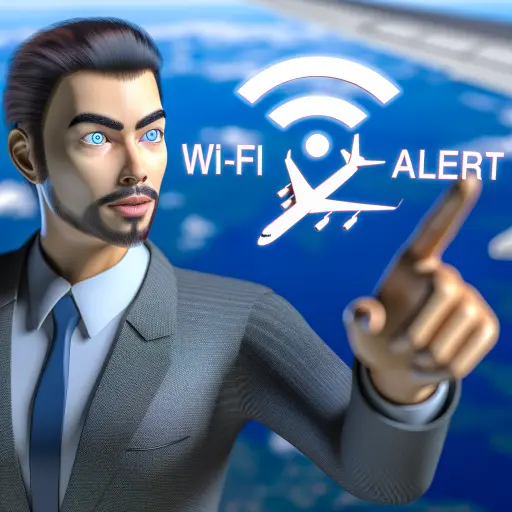
“Flyer Beware: Australian Man Faces Charges for Duping Passengers with Bogus In-Flight Wi-Fi”
The Rise of In-Flight Cyber Scams: How an Australian Man Exploited Airline Wi-Fi
In a world where technology is constantly evolving, it’s no surprise that cyber scams are on the rise. One such scam has recently come to light, involving an Australian man who exploited airline Wi-Fi on domestic flights. The man, whose name has not been released, was charged with creating fake Wi-Fi networks and tricking passengers into connecting to them.
The scam worked by the man setting up a Wi-Fi network with a name similar to the airline’s official network. Unsuspecting passengers would connect to the fake network, thinking they were accessing the airline’s Wi-Fi. Once connected, the man could access their personal information, including credit card details and passwords.
This type of scam is becoming increasingly common, as more and more people rely on public Wi-Fi networks while traveling. Airline Wi-Fi is particularly vulnerable, as passengers are often eager to connect to the internet during long flights. The Australian man’s scam is just one example of how cybercriminals are taking advantage of this vulnerability.
The rise of in-flight cyber scams is a cause for concern for both airlines and passengers. Airlines are now taking steps to improve the security of their Wi-Fi networks, but passengers also need to be vigilant. It’s important to always check that you are connecting to the correct network and to avoid entering sensitive information while using public Wi-Fi.
The Australian man’s scam serves as a reminder of the importance of cybersecurity while traveling. With more people than ever relying on technology to stay connected, it’s crucial to be aware of the risks and take steps to protect yourself. Whether you’re flying domestically or internationally, always be cautious when using public Wi-Fi and be sure to report any suspicious activity to the airline.
If you use public Wi-Fi hotspots, use a virtual private network (VPN) with strong encryption that allows you to connect to at least 2 city VPN servers (multi-hop) that will safeguard your online information and protect you from getting malware installed remotely.














